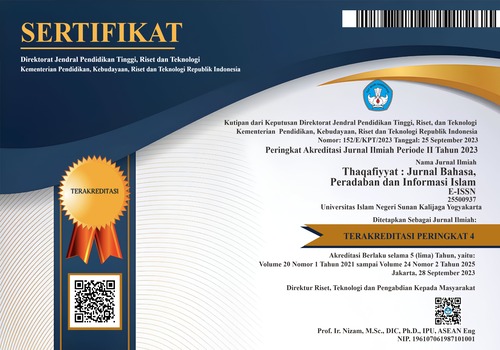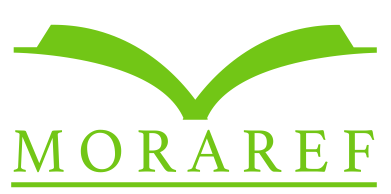BUKTI HUBUNGAN KERAJAAN ACEH DAN KESULTANAN TURKI UTSMANI DALAM NASKAH KHOTBAH JIHAD
Abstract
Abstract
Riddell’s Research (2001) shows the various elements in Islam, such as
doctrine, debate, theology, writing Manuscripts, commentary, legal, mystical, thought, and the reform movement, participate in developing the archipelago, from the 16th century until the 20th century. Islam also influences not only on the teachings and religious thought but also on writing systems and languages. In other words, the public acceptance of the Archipelago to Islam, Islam brings into acculturation with the local culture. This paper will look how the sermon to be a discourse which also influences the way of people of Aceh in the issue of jihad, it also wages a fight against the Dutch ambition to conquer Aceh as the most important regions in the archipelago at that time. The result of this research shows how the text can inflame resistance to colonization (read: Dutch) and
fostering self-sacrifice anything for the sake of religion and motherland.
Keywords: Sermon, Aceh war, Ottoman Turkish.
Downloads
References
Downloads
Published
Issue
Section
License
Authors who will publish with this journal agree to the following terms:
- Thaqafiyyat: Jurnal Bahasa, Peradaban dan Informasi Islam publishes all articles entirely in full text.
- It is permissible for readers to download and to use it for scientific purposes and scientific dissemination.
- Authors retain copyright and grant the journal right of first publication with the work simultaneously licensed under a Creative Commons Attribution License that allows others to share the work with an acknowledgement of the work's authorship and initial publication in this journal.
- Authors are able to enter into separate, additional contractual arrangements for the non-exclusive distribution of the journal's published version of the work (e.g., post it to an institutional repository or publish it in a book), with an acknowledgement of its initial publication in this journal.
- Authors are permitted and encouraged to post their work online (e.g., in institutional repositories or on their website) prior to and during the submission process, as it can lead to productive exchanges, as well as earlier and greater citation of published work.










